4.9 Rating
Google REVIEWS
Leaders in Georgia Personal Injury Law Since 1995
Your Advocate in Crisis: Top Atlanta Hit and Run Accident Lawyer for Just Results
Searching for an Atlanta hit-and-run accident lawyer after a distressing incident means you need clear, immediate answers. How can you get justice? What compensation might you be entitled to? This article provides direct insight into how a dedicated Atlanta lawyer like Scholle Law Car & Truck Accident Attorneys can step in to alleviate the confusion and help you navigate the legal implications to secure your rightful compensation.
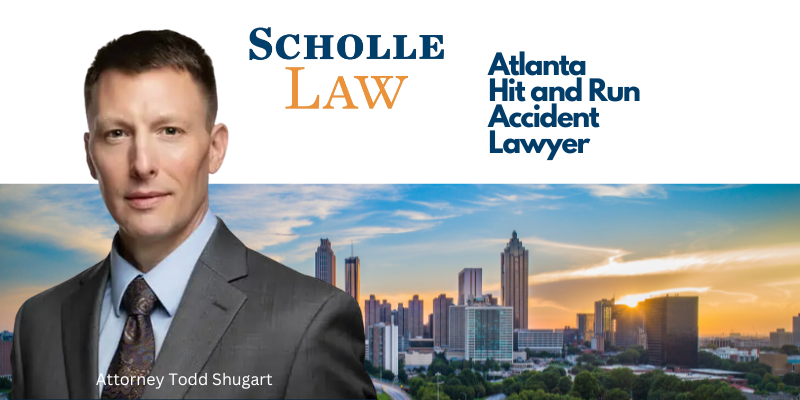
Key Takeaways
- Our experienced legal assistance is crucial for hit and run victims to navigate the legal process, protect against unfair treatment by insurance companies, and secure compensation.
- Georgia law enforces serious consequences for hit and run offenses ranging from misdemeanor to felony charges depending on the severity of the accident, and offers a two-year statute of limitations for personal injury suits.
- Uninsured motorist coverage is vital in hit and run accidents for potential recovery of damages when an at-fault driver is unidentified or uninsured, while preserving evidence and expert testimonies strengthen the victim’s case.

Navigating the Aftermath of a Hit and Run Accident
A hit and run accident can leave victims in a state of emotional chaos, often leading to profound distress like depression, debilitating anxiety, or PTSD. This emotional turmoil can severely affect the victim’s daily life and mental health. To add to the emotional burden, dealing with legal intricacies following an auto accident can be overwhelming. That’s where expert legal assistance comes into play.
Understanding your legal rights, identifying liable parties, and protecting yourself from unfair treatment by insurance companies is crucial post a hit and run accident. Our Atlanta car accident attorneys at Scholle Law, offer comprehensive representation, compassionate support, and prompt responses to any questions or concerns during the legal process, ensuring you’re not alone in this battle. In the aftermath of such incidents, knowing that your lawyer thoroughly understand the process of Atlanta car accident claims is a vital step towards obtaining the compensation you deserve.
Steps to Take Following a Hit and Run
Post a hit and run accident, your first step should be to check for injuries. If anyone is seriously hurt, call 911 to ensure immediate medical attention. While you might be in a state of shock after the car accident, it’s essential to keep a clear head and start gathering as much information as you can.
Document the accident by:
- Taking photos of the vehicle damage
- Taking photos of the accident scene
- Taking photos of any injuries
- Collecting witness statements along with their contact information
- Noting any details of the fleeing vehicle such as color, make, model, and part of the license plate
All this information will be useful when you report the accident to the local law enforcement.
Importantly, do not chase the fleeing driver as it could lead to further accidents, and never leave the scene, as this could result in legal complications. As soon as possible, contact your insurance company to report the hit-and-run, informing them with all available details and evidence.
Reporting the Incident to Authorities
Reporting the hit-and-run incident to the police is not just a procedural necessity; it is a critical step that aids in the investigation and creates an official record. A prompt report increases the likelihood of locating the fleeing driver, bringing them to justice, and shedding light on critical case details.
When reporting the incident, it’s important to provide as many details about the fleeing vehicle and driver as possible to the authorities. If you suspect the other driver was under the influence, make sure to communicate that to the police during reporting. Remember, your 911 call and the subsequent police accident report can provide essential information regarding the accident’s cause, helping establish fault.
Unraveling Georgia’s Hit and Run Laws
Georgia law requires drivers involved in an accident to stop at the scene, exchange information, and provide assistance such as medical aid if necessary. Fleeing the scene without fulfilling these legal duties can lead to serious hit and run charges. In cases of injury or death, these charges escalate to felonies with potential imprisonment of 1 to 5 years.
Understanding of these laws is essential as hit and run offenses in Georgia carry serious repercussions, like license suspension, particularly for drivers under 21. They can contribute to a habitual violator status with two additional major traffic violations within five years. However, less severe charges may apply in some hit and run cases, such as when striking an unattended vehicle, often resulting in reduced penalties like smaller fines and misdemeanor classification.
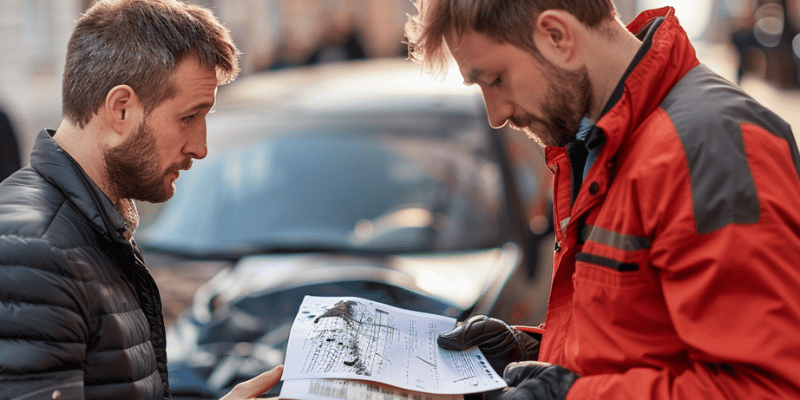
Criminal vs. Civil Consequences
In Georgia, fleeing the scene of an accident is not just a traffic violation; it’s a criminal offense. Depending on the accident’s severity, it can be categorized as a felony for accidents resulting in serious injury or death, and a misdemeanor for minor accidents. But the legal implications of a hit and run accident don’t end at criminal consequences.
Victims of hit and run accidents can seek civil remedies through a personal injury suit. They may be entitled to recover damages such as:
- Medical costs
- Lost income
- Pain and suffering
- Punitive damages
However, it’s essential to possess a clear understanding and narrative of the hit and run accident to successfully seek and be awarded damages under Georgia law. Remember, Georgia’s modified comparative negligence law stipulates that compensation may be adjusted based on the victim’s share of fault in the accident.
Statute of Limitations in Georgia
Time is of the essence when seeking legal remedies for a hit and run accident. In Georgia, the statute of limitations for car accidents, including hit and run accidents, is generally two years from the date of the accident. However, there are exceptions to the standard rule.
For instance, if the victim is a minor, the two-year period begins when they reach the age of 18. If a government agency is responsible for the accident, it could shorten the time limit. This highlights the importance of acting promptly in hit and run cases to ensure legal action is taken within the allowable time frame, thereby preserving the right to seek compensation.
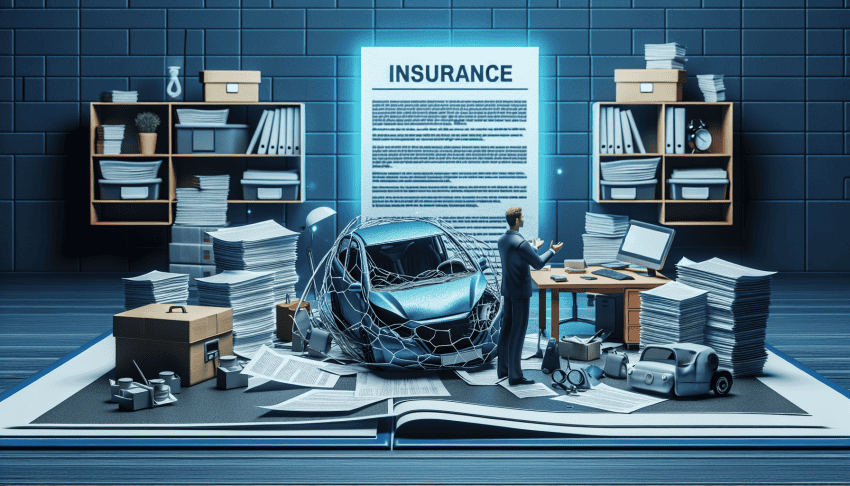
Insurance Considerations in Hit and Run Cases
While insurance should ideally act as a safety net, dealing with insurance companies post a hit and run accident can be a complex task. It’s not uncommon for insurance companies to offer quick settlements that may not fully cover the victims’ injuries and case value. Such offers require a careful evaluation before acceptance.
Insurance companies may deny claims based on several reasons such as:
- disputed liability
- policy exclusions
- lapsed policies
- failure to promptly notify the company
- lack of documented injuries
- non-permissive drivers
They might also devalue hit and run claims by attributing injuries to pre-existing conditions. It’s crucial not to automatically accept a claim denial, and getting the denial in writing can aid in understanding and challenging the insurer’s decision.
Navigating Insurance Claims
It’s important to remember that dealing with insurance companies without legal representation from a firm like Scholle Law, is likely to result in less compensation. Insurance companies are interested in protecting their bottom line and tend to have teams of experienced adjusters looking to reduce or deny your claim. That’s why you need to approach conversations with insurance adjusters with caution.
If you do speak with them (even though Scholle Law strongly recommends against this), keep conversations brief and avoid providing detailed information over the phone to prevent recorded statements that could be used adversely. Never discuss the severity of injuries with insurance adjusters, as the symptoms and their full impact can manifest later, affecting the compensation. Always avoid making statements or accepting settlements from the at-fault driver’s insurance company without legal advice.
When negotiating settlements, having a lawyer ensures a fair offer based on documented injuries, expenses, and lost wages. Remember, compensation claims can include treatment costs for psychological care, such as therapy sessions or medication, resulting from a hit and run incident.
The Role of Uninsured Motorist Coverage
Uninsured motorist (UM) coverage is a critical component of auto insurance policies. It offers protection when an at-fault driver lacks sufficient insurance or is unidentified, which is often the case in hit and run accidents. In the event of a hit and run accident in Georgia, uninsured motorist coverage allows victims to potentially recover damages if the driver remains unidentified.
MedPay insurance is another useful tool for covering medical bills, especially beneficial if the at-fault driver is not found or lacks insurance coverage. After a hit and run, maintaining documentation of continuous medical treatment is vital, as gaps can negatively impact the victim’s ability to claim compensation through insurance.
Proving Liability and Building a Strong Case
To establish liability in a hit-and-run case in Georgia, demonstrating negligence is essential. This includes proving the duty of the at-fault driver, the breach of this duty, causation, and damages. An Atlanta hit and run accident lawyer can provide critical support by gathering evidence, building a claim, handling communications, negotiating settlements, and representing victims in court when needed.
The effective use of the police report, potential criminal charges against the hit and run driver, and resources such as legal and investigative teams are pivotal in substantiating a hit-and-run victim’s damages claim.
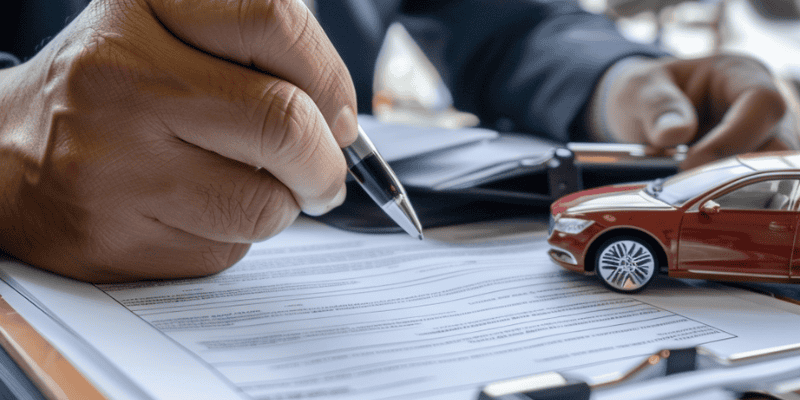
Gathering Evidence
Evidence is the cornerstone of any legal case, and hit and run accidents are no exception. Medical documentation provides a timeline and causal link between the accident and injuries, refutes pre-existing condition claims, and impacts compensation negotiations.
Visual evidence from the accident scene, such as photographs and videos, add a persuasive layer in establishing what occurred and who is at fault. Testimonies from unbiased eyewitnesses who have observed the entire incident also provide powerful evidence that can help establish fault in a hit and run accident.
Remember, compiling strong, conclusive evidence is a legal imperative for proving liability and is a foundational aspect of a successful hit and run claim in Georgia.
Expert Testimony
Expert witnesses can significantly influence the outcome of a hit and run case, whether in settlement negotiations or at trial, by clarifying various aspects of the case. Accident reconstruction specialists apply principles of engineering and physics to deduce the mechanics of the hit and run accident, often employing evidence such as tire skid marks to approximate vehicle speeds and the collision’s dynamics.
Medical experts provide critical testimony on the severity of injuries suffered by hit-and-run victims, detailing the necessity for ongoing medical treatments and offering prognoses, which are essential for comprehensively understanding the victims’ future medical needs. Economic analysts and life care planners project the long-term medical and assistance needs, painting a full picture of the economic impact.
In tragic circumstances where a car crash results in a hit and run fatality, expert witnesses become instrumental in discerning causes of death, the financial losses suffered by dependents, and the medical care and associated costs prior to the victim’s death.
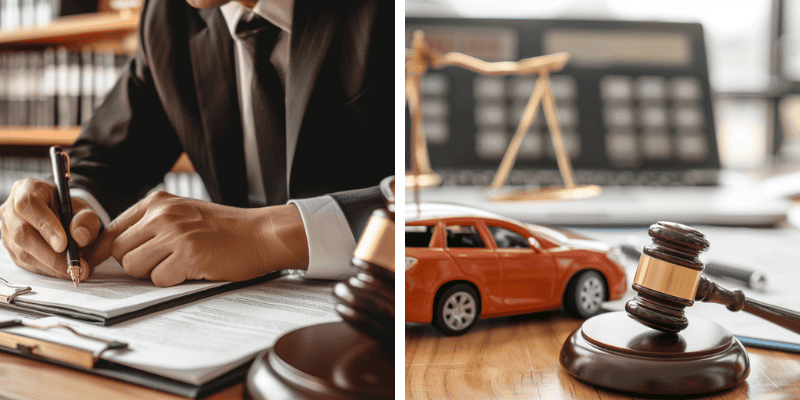
Types of Compensation Available for Hit and Run Victims
Victims of hit and run accidents may be eligible for various types of compensation. Economic compensation covers hospitalization, professional fees, physical therapy, diagnostic tests, medications, mobility aids, lost income, vehicle repair costs, and even funeral expenses. Additionally, non-economic damages include compensation for the victim’s pain and suffering, loss of enjoyment of life due to long-term injuries such as paralysis or brain damage, emotional distress including anxiety and PTSD, and loss of consortium reflecting negative effects on family relationships.
In situations where the hit and run was carried out with the intention to harm, punitive damages might be awarded to the victim as a means to punish the perpetrator and deter similar conduct.

Choosing the Right Atlanta Hit and Run Accident Lawyer
Choosing the right Atlanta hit and run accident lawyer is a critical decision. By working with an Atlanta car accident lawyer at Scholle Law, you’ll get the benefit of our extensive experience in dealing with a variety of hit-and-run scenarios, a proven track record of proving negligence, and a history of recovering damages.
Consider Scholle Law’s stellar reputation by reviewing our industry awards and honors, as well as checking resources like Google and Avvo for attorney reviews, which reflect our dedication and past client satisfaction. Our lawyer’s willingness to offer a free initial consultation and a contingent fee agreement, where legal fees are only due if compensation is recovered, demonstrates our confidence in winning your case.
Also, by choosing Scholle Law, you’ll be working with a lawyer with an in-depth understanding of local and state laws. Local courtroom experience and dealings with local insurers can provide strategic advantages in hit and run accident cases.
Summary
In the aftermath of a hit and run accident, the journey to justice can be a challenging one. From dealing with the emotional trauma, navigating legal complexities, handling insurance considerations, building a strong case, to seeking fair compensation – each phase requires careful handling. Having an experienced Atlanta hit and run accident lawyer like Scholle Law by your side can make this journey less daunting. We can guide you through the process, fight for your rights, and ensure you receive the compensation you rightfully deserve.
Frequently Asked Questions
Is Georgia a no fault car accident state?
No, Georgia is not a no-fault state for car accidents. Before your insurance company will pay for damages, you need to prove which driver was at fault for the crash.
Does insurance cover hit and run in Georgia?
Yes, in Georgia, uninsured motorist coverage may pay for damages caused by a hit-and-run accident, even though it is not required by law. It is important to consider having this type of policy.
What is the punishment for a hit and run in Georgia?
In Georgia, the punishment for a hit and run can include a fine between $300 and $1,000, jail time up to 12 months, or both for a first conviction, with increased penalties for subsequent convictions. These penalties are imposed to deter and penalize this serious offense.
Can you sue for hit and run in Georgia?
Yes, you can sue for hit and run in Georgia. Victims of hit-and-run accidents can file a lawsuit against the perpetrator if they are eventually identified. If the driver remains unidentified, victims might still have options through their insurance policies, specifically Uninsured Motorist (UM) coverage.
What should I do immediately after a hit and run accident?
After a hit and run accident, it’s crucial to check for injuries, call 911 if needed, document the accident, gather witness information, and report the incident to the police. Take these steps without chasing the fleeing driver.
